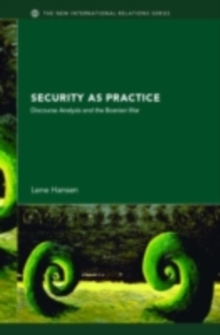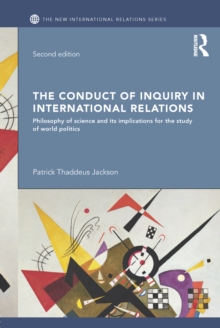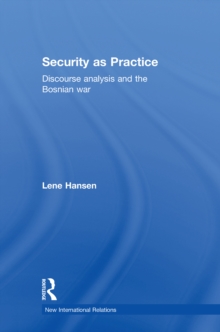
Special Relationships in World Politics : Inter-state Friendship and Diplomacy after the Second World War Hardback
by Kristin Haugevik
Part of the New International Relations series
Hardback
Description
Claims of inter-state ‘specialness’ are commonplace in international politics.
But how do some relationships between states come to be seen and categorized as ‘special’ in the first place? And what impact, if any, do recurring public representations of specialness have on states’ political and diplomatic interaction?While much scholarly work exists on alleged instances of special relationships, and on inter-state cooperation and alliances more generally, little systematic and theory informed research has been conducted on how special relationships evolve and unfold in practice.
This book offers such a comprehensive study. Theorizing inter-state relations as ongoing social processes, it makes the case for approaching special relationships as constituted and upheld through linguistic representations and bilateral interaction practices.
Haugevik explores this claim through an in-depth study of how the bilateral relationship most frequently referred to as ‘special’ – the US-British – has unfolded over the last seventy years.
This analysis is complemented with a study of Britain’s relationship with a more junior partner, Norway, during the same period.
The book offers an original take on inter-state relations and diplomacy during the Cold War and after, and develops an analytical framework for understanding why some state relationships maintain their status as ‘special’, while others end up as ‘benignly neglected’ ones.
Information
-
Available to Order - This title is available to order, with delivery expected within 2 weeks
- Format:Hardback
- Pages:224 pages, 5 Tables, black and white; 3 Line drawings, black and white
- Publisher:Taylor & Francis Ltd
- Publication Date:30/08/2018
- Category:
- ISBN:9780415786393
Other Formats
- EPUB from £35.99
- PDF from £35.99
- Paperback / softback from £39.99
Information
-
Available to Order - This title is available to order, with delivery expected within 2 weeks
- Format:Hardback
- Pages:224 pages, 5 Tables, black and white; 3 Line drawings, black and white
- Publisher:Taylor & Francis Ltd
- Publication Date:30/08/2018
- Category:
- ISBN:9780415786393










